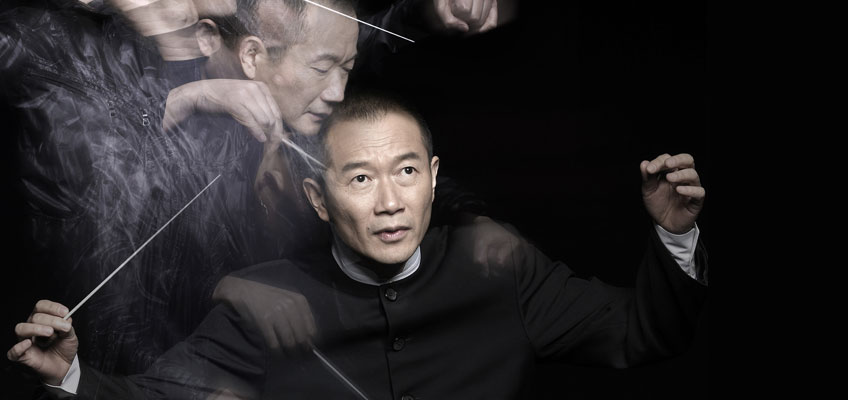On Tuesday 27 June a very special artist comes to Cadogan Hall; in Hollywood circles a living legend, a man whose music has been recognised above the work of fellow composer-greats John Williams, Hans Zimmer and Ennio Morricone. In 2000 he walked onto the stage at no less an occasion than the Academy Awards to receive the Oscar for Best Original Score for the film Crouching Tiger, Hidden Dragon, an achievement made doubly significant by the fact that the other film scores shortlisted that year included Gladiator, Chocolat and The Patriot.
The lucky audience at Cadogan Hall in June will get to experience a flavour of that amazing night when not only will they hear the Crouching Tiger Concerto, a special orchestral version of the soundtrack, but they will also see and hear it being conducted by no less a figure than the composer himself – Tan Dun. This magical and compelling work will be performed alongside another of his pieces, the mesmeric Intercourse of Fire and Water for solo cello, performed by Jing Zhao.
Also on the programme, Manuel de Falla’s exotic Ritual Fire Dance and Britten’s haunting Four Sea Interludes, from Peter Grimes. It promises to be a thrilling night of rich and varied music-making with, at its centre, the quiet but charismatic figure of Tan Dun. What, I asked him, were his guiding principles when composing his score for Crouching Tiger, Hidden Dragon? “To make music without boundaries,” he replied. “The music of Crouching Tiger, Hidden Dragon, which bridges East and West, romance and action, high and low cultures, calls directly to the soul’s journey.” A notable feature of the music is its classical ‘sensibility’. Was that intentional? “I try to make my film music artistic – soul reaching and soul searching – and to make my classical music more conceptual in order to reach a younger and wider audience.”
Born in a remote village in China sixty years ago, Tan Dun learned to play traditional Chinese stringed instruments before travelling to Beijing to study at the city’s hugely respected Conservatory of Music. Here he met and worked with composers from both East and West, including Toru Takemitsu and Hans Werner Henze. By now nationally famous, in 1986 Tan Dun moved to New York to study, where he remains in what he describes as the “24/7 densely populated, ever-changing urban sprawl of New York City”. It’s an environment and a story that has widened his horizons but perhaps because of his Chinese roots, opera is at its core. “My life is opera; everybody’s life is opera!” he says. He has written five, all of them stretching the boundaries of this art form, as popular in the East as it is in the West. Among his most ambitious was The First Emperor, commissioned by the Metropolitan Opera in 2006, with Plácido Domingo in the title role. What was he like to work with? “He was tremendous. He told me he was always singing Wagner and Strauss with the huge, romantic forces of the orchestra but he liked the fact that now he was being accompanied by drums, sometimes stones... When we had our first rehearsal, he was so excited. He couldn’t sit down; he kept on jumping up and asking me questions!”
Another of Tan Dun’s musical passions is the cello. We’ll hear his work, Intercourse of Fire and Water, performed by the cellist Jing Zhao at the concert. What is the instrument’s attraction? “I have always thought the cello is an instrument that most closely resembles the human voice. I have worked with Yo-Yo Ma [the French-born, Chinese-American cellist] many times. We have a very special musical and cultural relationship anchored on the cello.”
Reflecting on his Chinese origins how, I wondered, do they inform or influence his music in general? “My approach is to try to be very faithful to my memory and my experience. Before I moved to New York, I was trained in Chinese opera and Eastern rituals. After I came to New York, I was trained in all kinds of western classical music, from classical to modern. Those things became equally blended as one. I cannot physically separate my early experience from my later experience. “The way I write music is a reflection of my life experience. It's not the only approach to making music but since it is so totally connected to my tradition and experience, it's the only approach I know. The most important aspect of art is finding your roots, because your perspective is what makes art so interesting.” Fortunately, it’s a perspective the audience at Cadogan Hall on Tuesday 27 June will be able to appreciate first-hand.
Written by John Evans

